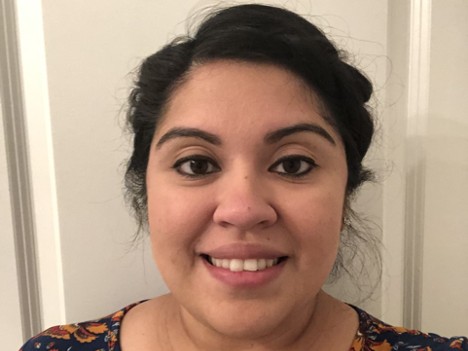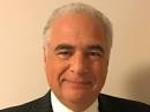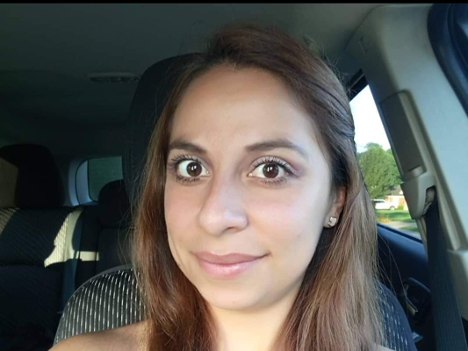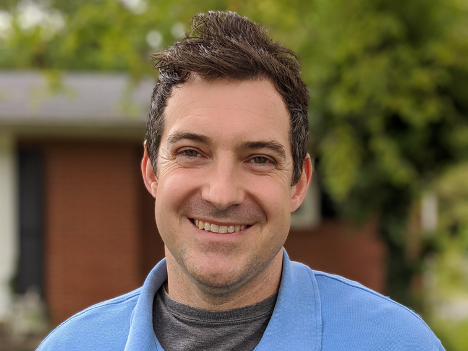Bilinguals in the Workplace
 |
Susana RivasEnglish as a Second Language Teacher, Moss Middle School, Bowling Green, KYSusana Rivas can relate to her English language learners at Moss Middle School: She didn’t grow up in an English-speaking household. The daughter of immigrants from El Salvador, Rivas heard mostly Spanish at home. The Bowling Green educator went on to receive undergraduate and graduate degrees from WKU and Murray State, respectively. However, she has maintained her Spanish proficiency through regular interaction with family members, visits to El Salvador, and a semester abroad in Spain. This fluency is vital for reaching her students and their families: “There are times when my Spanish-speaking students do not understand what's going on or certain concepts after giving examples and modeling. So, I change what I am doing by saying the information in Spanish and then go back and forth between the two languages to help them make connections. It also helps when calling home and opening up that line of communication between parents and school.” She believes that Americans’ lack of second language proficiency “limits opportunities to a world outside of the U.S.” While learning another language requires great effort, Rivas encourages students to “be patient, kind to yourself, and be okay with making mistakes.”
|
 |
Cindy Rodriguez
Nurse, Bowling Green, KYBowling Green nurse Cindy Rodriguez sees the rewards of bilingualism every day: “It is really nice to be able to communicate and relate to patients who speak Spanish; because they find it comforting, they can communicate with confidence when receiving care.” The WKU graduate grew up in Bowling Green, yet she spoke Spanish with her El Salvadorian parents. Without command of the language, she “would not have the opportunity to take care of people who speak a different language.” She believes that not knowing another language prevents many Americans from learning about the world, but it is never too late. She encourages students “to be confident when learning to speak another language, and to practice, practice, practice. The more you practice, the easier it will feel to speak another language.”
|
 |
Dr. Andrey Livchak
Director of Research and Development, Halton Group, Scottsville, KYDr. Andrey Livchak was first introduced to English during school in his native Russia. Livchak left in 1989 to work in Finland, where he also acquired basic proficiency in the Finnish language. While he mostly uses English, Livchak utilizes his native Russian when collaborating with engineers from his home country. Although native speakers of English have the advantage of already speaking the most studied language in the world, this “discourages many English-speakers from learning another language. Unfortunately, it may result in a higher proportion of people with a ‘everything I need is right here’ attitude.” He further states that “to make an impact, improve the world you’re living in or advance your profession, you need to benchmark and measure your progress against the outside world.” What is his advice to students? “Stay curious and travel to learn how people live in other countries.”
|
 |
Carolina BricenoLegal Assistant, Hughes and Coleman, Bowling Green, KYCarolina Briceno decided to learn English after her first trip to the United States in 2011: “This trip allowed me to experience so many things while I was visiting different states. Also, when I went back home, I got better job opportunities due to my English.” Upon returning to her native Ecuador, Briceno completed her degree in law. She eventually decided to settle in the United States and now works as a legal assistant at Hughes and Coleman in Bowling Green. Her responsibilities include helping Spanish-speaking clients and translating legal documents. Without fluency in both English and Spanish, she wouldn’t be able to communicate with clients and “might even misunderstand some details that can be useful in their cases.” Briceno believes bilingualism “can help you to have better job opportunities but also can help a country to conquer new markets and improve their economy.” However, students must be patient: “Learning a new language is challenging and difficult but with effort and perseverance everything is possible.”
|
 |
Paul CollinsTranslator/Interpreter, Kobe Aluminum, Bowling Green, KYBowling Green native Paul Collins didn’t start his language learning journey with Japanese, but this is the language that forms the focus of his professional life. A linguistics major at University of Kentucky, Collins studied German and ancient history at the University of Heidelberg for one year. That was also when he took his first Japanese course. For more than 15 years, Collins has formally and informally studied the language, knowledge of which is essential for his daily work at Japanese metal manufacturer Kobe Aluminum: “Until recent years, my bosses have always been Japanese executives and our communication has been predominantly in Japanese. I cannot even imagine what my life would be like if I didn’t know Japanese, but I can say with certainty that I would never have been hired.” For Collins, “being multilingual really does help one to be more empathetic and understanding of other people and as an extension, it helps us as a nation to be less insular and more connected to the rest of the world.” However, students should remember that “languages aren’t learned overnight, and there are no magic elixirs.”
|
Some of the links on this page may require additional software to view.

